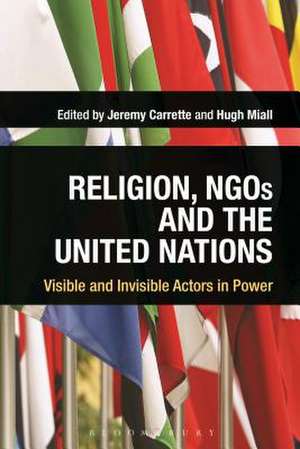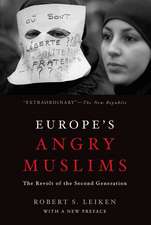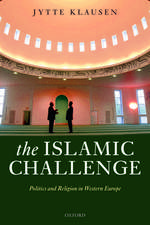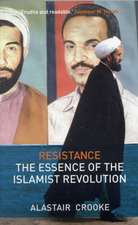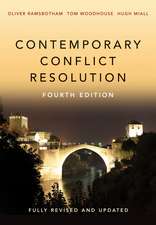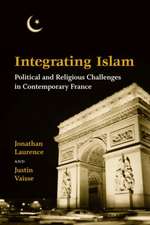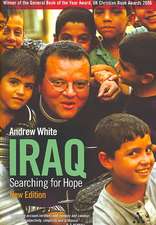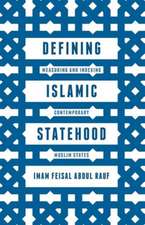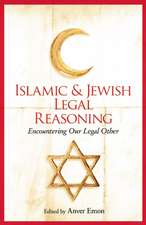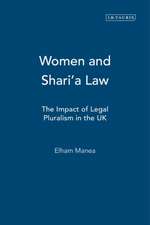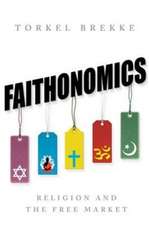Religion, NGOs and the United Nations: Visible and Invisible Actors in Power
Editat de Prof. Jeremy Carrette, Hugh Miallen Limba Engleză Paperback – 31 oct 2018
| Toate formatele și edițiile | Preț | Express |
|---|---|---|
| Paperback (1) | 239.41 lei 6-8 săpt. | |
| Bloomsbury Publishing – 31 oct 2018 | 239.41 lei 6-8 săpt. | |
| Hardback (1) | 775.02 lei 6-8 săpt. | |
| Bloomsbury Publishing – 22 mar 2017 | 775.02 lei 6-8 săpt. |
Preț: 239.41 lei
Preț vechi: 306.61 lei
-22% Nou
Puncte Express: 359
Preț estimativ în valută:
45.81€ • 47.83$ • 37.83£
45.81€ • 47.83$ • 37.83£
Carte tipărită la comandă
Livrare economică 15-29 aprilie
Preluare comenzi: 021 569.72.76
Specificații
ISBN-13: 9781350085763
ISBN-10: 1350085766
Pagini: 320
Ilustrații: 2 bw illus
Dimensiuni: 156 x 234 x 22 mm
Greutate: 0.45 kg
Ediția:NIPPOD
Editura: Bloomsbury Publishing
Colecția Bloomsbury Academic
Locul publicării:London, United Kingdom
ISBN-10: 1350085766
Pagini: 320
Ilustrații: 2 bw illus
Dimensiuni: 156 x 234 x 22 mm
Greutate: 0.45 kg
Ediția:NIPPOD
Editura: Bloomsbury Publishing
Colecția Bloomsbury Academic
Locul publicării:London, United Kingdom
Caracteristici
Covers
a
wide
range
of
religious
traditions
engaging
in
the
UN
processes,
including
Christian,
Islamic,
Hindu
and
Buddhist
NGO
groups
Notă biografică
Jeremy
Caretteis
Professor
of
Philosophy,
Religion
and
Culture
at
the
University
of
Kent,
UK.Hugh
Miallis
Emeritus
Professor
in
Politics
and
International
Relations
at
the
University
of
Kent,
UK.
Cuprins
ContributorsAcknowledgementsIntroduction:
Religion,
the
United
Nations
and
Institutional
Process,
Jeremy
Carrette
(University
of
Kent,
UK)1.
Realism
and
Idealism:
NGOs
and
the
United
Nations
System,Hugh
Miall
(University
of
Kent,
UK)2.
The
Problem
of
Categories:
Exploring
Religion
and
NGOs
Through
Survey
Research,Evelyn
Bush
(Fordham
University,
USA)3.
Representation,
Accountability
and
Influence
at
the
UN:
Results
from
the
Survey
of
Religious
NGOs,Evelyn
Bush
(Fordham
University,
USA)4.Religious
NGOs,
UN
Participation
and
Fieldwork
Methodology,
Sophie-Hélène
Trigeaud
(Catholic
Institute
of
Paris,
France)5.
On
and
Behind
the
Scene:
Religious
NGO
Processes
at
the
OHCHR
of
the
UN
in
Geneva,Sophie-Hélène
Trigeaud(Catholic
Institute
of
Paris,
France)6.
Blessing
or
Bother?
Religion
and
Religious
NGOs
at
the
UN
in
New
York,Verena
Beittinger-Lee
(Independent
Scholar)7.
Islam,
The
OIC
and
the
Defamation
of
Religions
Controversy,Verena
Beittinger-Lee(Independent
Scholar)
&
Hugh
Miall(University
of
Kent,
UK)8.
Catholicism
at
the
United
Nations
in
New
York,Verena
Beittinger-Lee(Independent
Scholar)9.
Hindu
and
Buddhist
NGOs
and
the
United
Nations,Jeremy
Carrette(University
of
Kent,
UK)Conclusion:
Diplomacy,
State
Power
and
Irrational
Religion,Hugh
Miall
&
Jeremy
CarretteNotesBibliographyIndex
Recenzii
This
book
is
well
organized,
with
insights
about
codes
of
conduct
and
social
norms
at
the
UN,
and
reveals
the
potential
and
limits
of
RNGOs
as
political
actors.
[The] volume stands as an important piece of work outlining an invaluable research and policy agenda for researchers, NGOs, and diplomats through its empirically grounded analysis of the role and impact of religious-affiliated NGOs within the UN system.
Good research answers -- and raises -- questions. This study provides empirical evidence of the interaction between religion, NGOs, and the United Nations, confirming hypotheses and providing answers. It also lays out a rich research and policy agenda for researchers, NGOs and diplomats.
Religious differences have always played a crucial role - if not always recognized - in shaping the socio-economic, humanitarian, peace keeping, and refugee policies of United Nations member states. I welcome this study that attempts to analyse the role and impact of religious-affiliated NGOs within the UN world.
This book, the first interdisciplinary examination of the processes of contemporary religious NGO activity at the United Nations, is a groundbreaking study of how 'religion' works in this crucial international forum. This well-researched and clearly argued book explains that to understand the activities of 'religious' NGOs at the UN, we need to see them as a crucial component of international civil society, using the UN as a focal point of activities in order to influence outcomes both at the UN and at the level of individual states.
This book presents the findings of a major research project, and offers new and unique insights about how faith-based groups operate in the context of the UN.
[The] volume stands as an important piece of work outlining an invaluable research and policy agenda for researchers, NGOs, and diplomats through its empirically grounded analysis of the role and impact of religious-affiliated NGOs within the UN system.
Good research answers -- and raises -- questions. This study provides empirical evidence of the interaction between religion, NGOs, and the United Nations, confirming hypotheses and providing answers. It also lays out a rich research and policy agenda for researchers, NGOs and diplomats.
Religious differences have always played a crucial role - if not always recognized - in shaping the socio-economic, humanitarian, peace keeping, and refugee policies of United Nations member states. I welcome this study that attempts to analyse the role and impact of religious-affiliated NGOs within the UN world.
This book, the first interdisciplinary examination of the processes of contemporary religious NGO activity at the United Nations, is a groundbreaking study of how 'religion' works in this crucial international forum. This well-researched and clearly argued book explains that to understand the activities of 'religious' NGOs at the UN, we need to see them as a crucial component of international civil society, using the UN as a focal point of activities in order to influence outcomes both at the UN and at the level of individual states.
This book presents the findings of a major research project, and offers new and unique insights about how faith-based groups operate in the context of the UN.
